'Sunshine Bill' for new build solar panels rejected
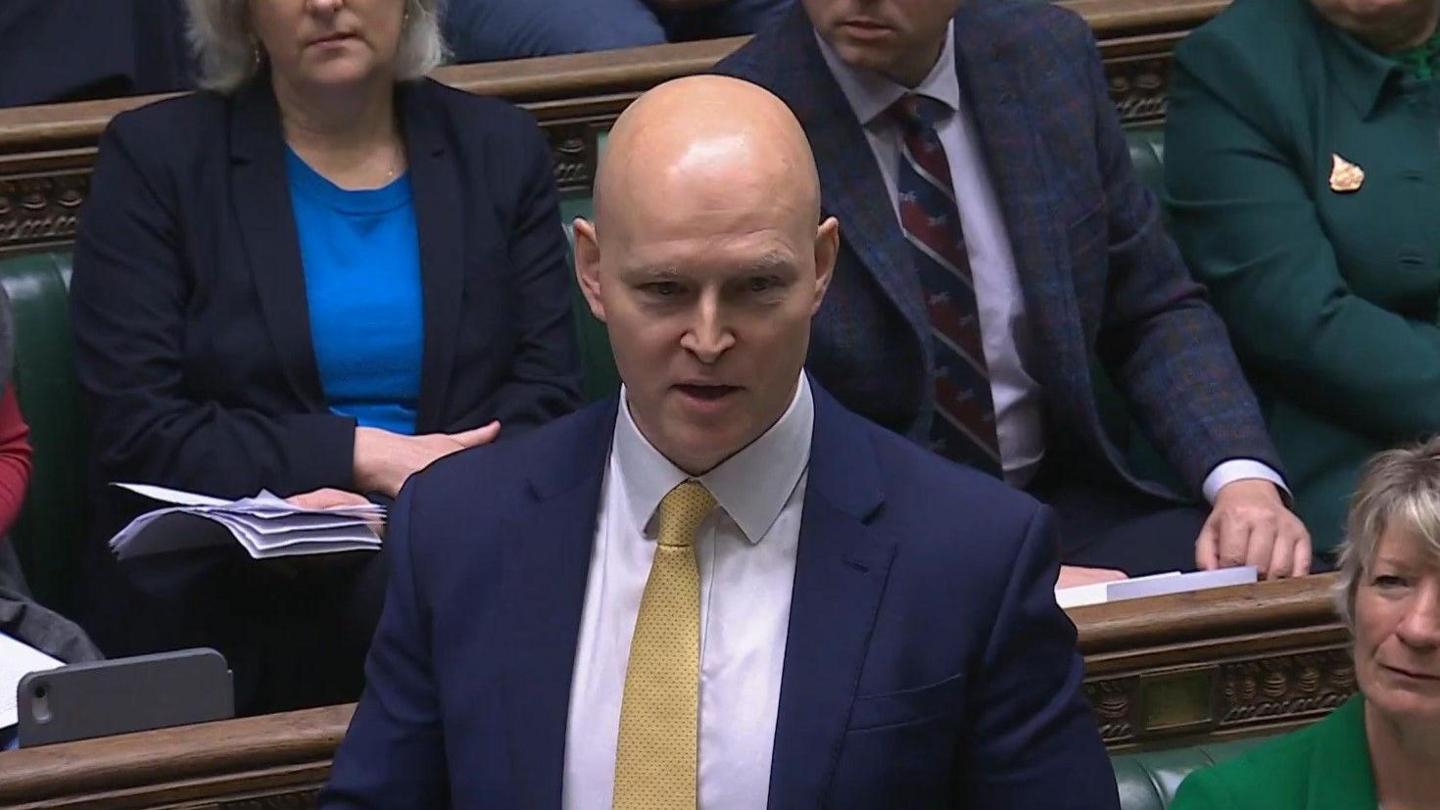
MP Max Wilkinson dubbed the proposed legislation the "Sunshine Bill"
- Published
A proposed law requiring all new homes to have solar panels suggested by Cheltenham's MP has been rejected.
The New Homes (Solar Generation) Bill, brought by Liberal Democrat Max Wilkinson, was debated in parliament on Friday during its second reading.
The so-called "Sunshine Bill" could help the country tackle the "twin crises" of the cost of living crisis and climate change, Mr Wilkinson said.
But while minister for housing and planning Matthew Pennycook said the government was "extremely sympathetic", it was rejected by officials.
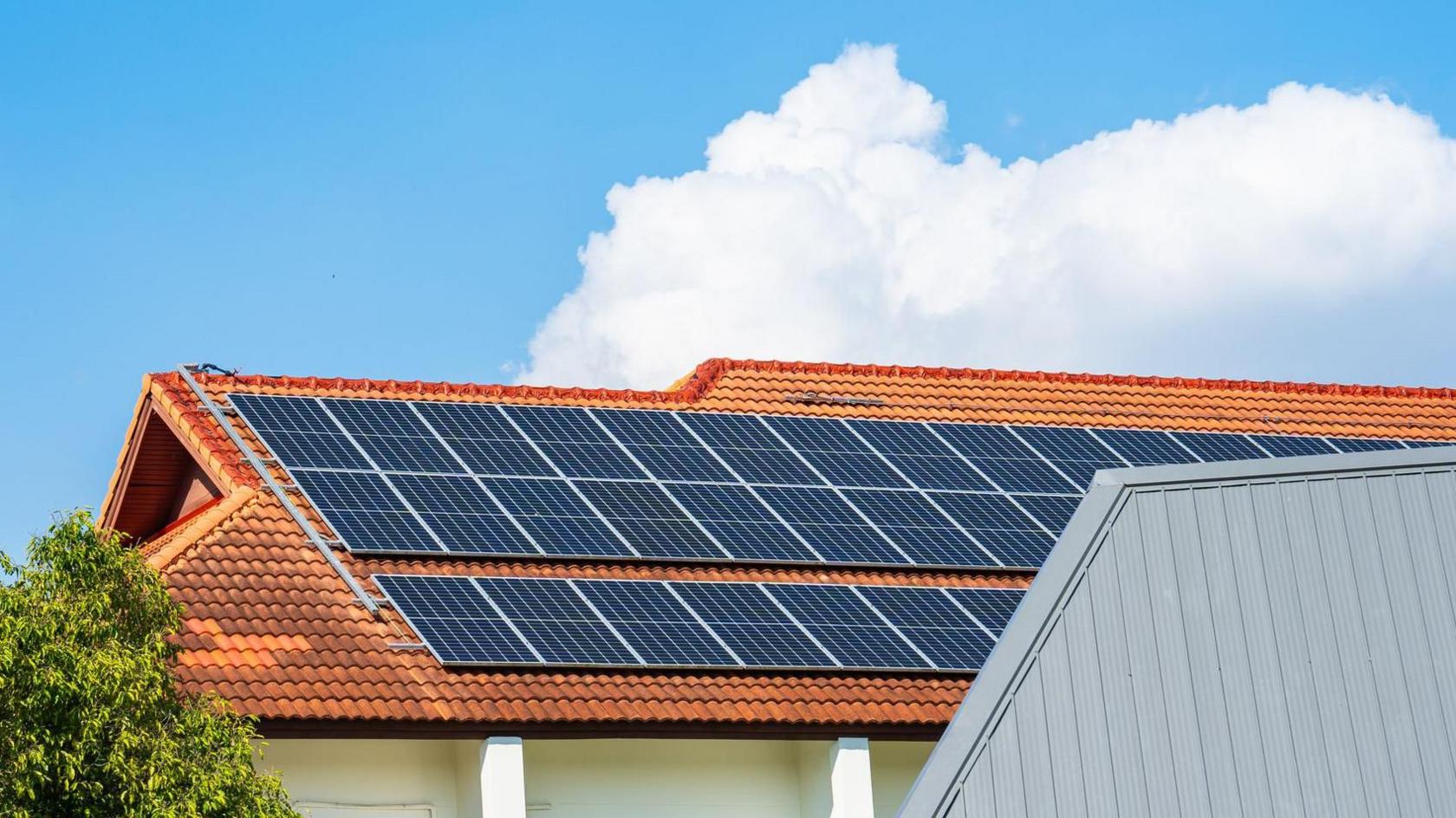
Addressing the House of Commons, Mr Wilkinson said compulsory solar panels on new homes could result in "a future in which people have lower household bills, a future in which we are less reliant on dirty and expensive fossil fuels often imported from abroad [and] a future in which this country's energy supplies are more secure."
He described how the need for access to renewable energy sources had been exposed by the dramatic increase in the energy price cap, which he said had led to a "shocking increase in food bank use".
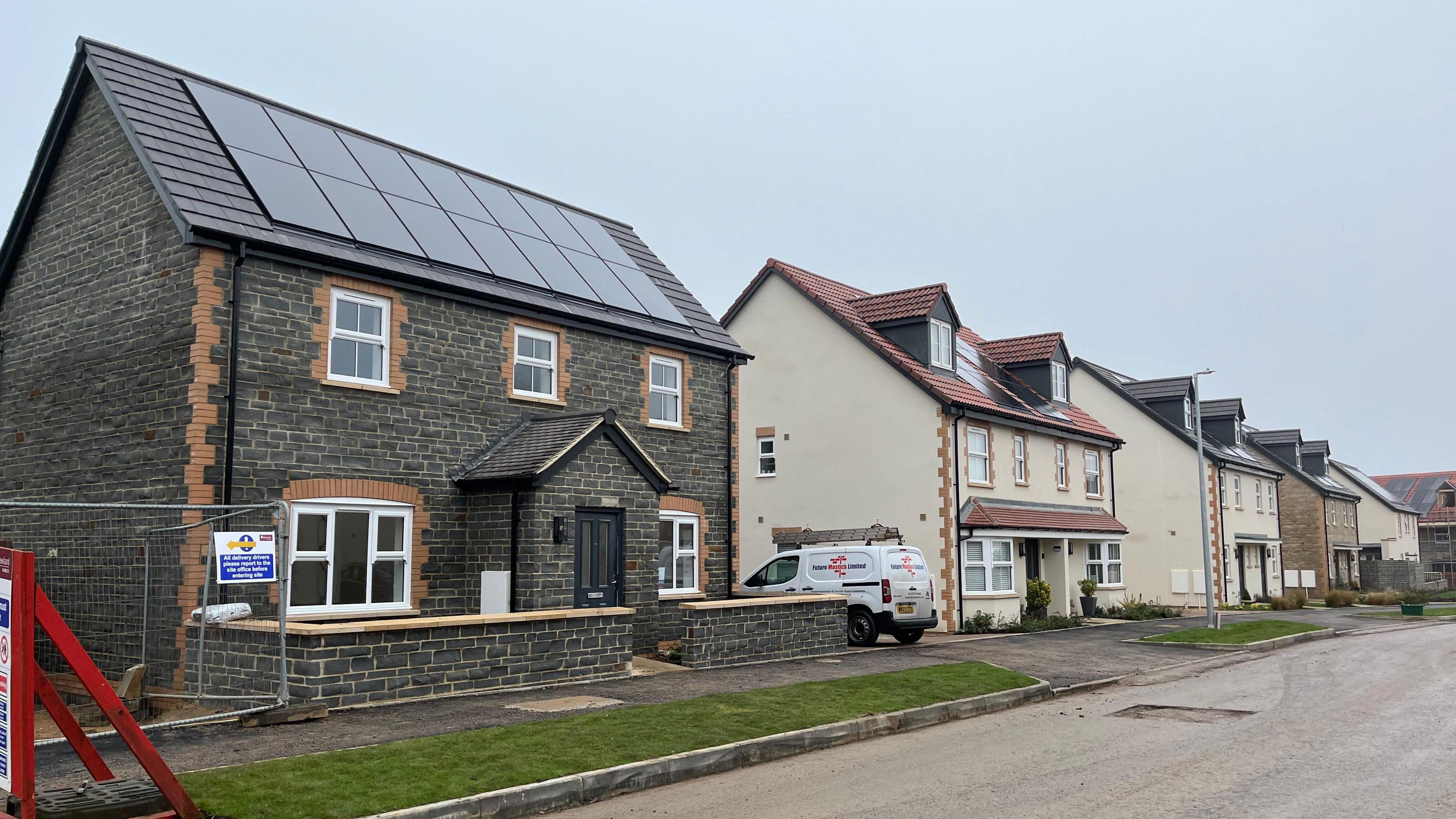
One new development in Yate features 84 homes, all with solar panels
The energy price cap - a limit on the price that energy suppliers can charge for electricity and gas set every three months by sector regulator Ofgem - increased by 12% in October 2021 and 54% in April 2022.
Last April's increase was equivalent to £700 more across a year for direct debit customers with "typical" levels of dual fuel consumption.
The current energy price cap is set at £1,738 a year for a typical household, up 1.2% from the three months before. To put that in context, the energy cap was set at £1,042 in October 2020.
'Safer and stronger'
The reason for soaring energy costs are complex, but have mostly been attributed to an increase in demand for oil and gas as economies recovered from Covid-19 lockdowns and the Russian invasion of Ukraine in 2022.
Mr Wilkinson described the previous action on renewables in housing as "short-sighted", saying that "bills could and should have been hundreds of pounds lower for everyone".
If householders had access to their own renewable energy sources like solar panels, he added, they "would have been insulated against higher bills and our nation would have been safer and stronger too".
In South Gloucestershire, near Yate, one housebuilding company has built 84 homes - all of which have solar panels already integrated into the design.
Marcus Evans, sales and marketing director for Newland Homes, told BBC Points West that early data they had collected showed customers were saving up to £2,000 a year on energy bills - £50,000 over the course of a 25-year mortgage.
"It's the perfect time for buyers to change their habits, when they move into their new homes," he explained - adding that it was much easier to install solar panels into a new home than it is to retrofit them in an older property.
"There is no question in our minds that this is the right thing to do," he said.
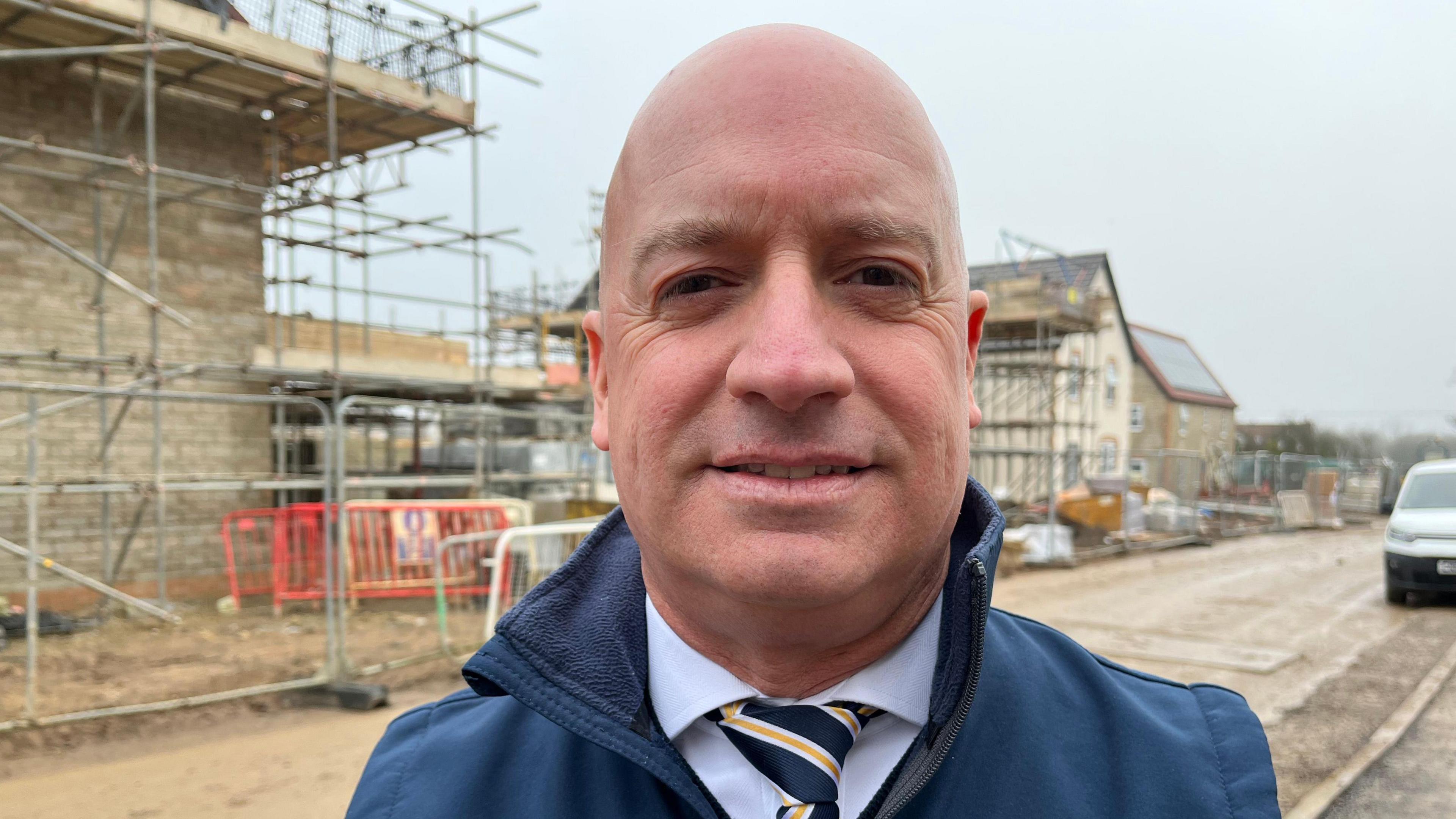
Mr Evans said buying a new home was the 'perfect time' for people to think about their energy habits
Chris Parker, head of marketing at the company, said the drive to create eco-friendly homes had started around three years ago.
"It cuts carbon and slashes bills, so we think it's a win-win both for the planet and for the pocket too," he said.
As well as solar panels on the roof, Newland homes said it had increased insulation levels, was fitting gas-free boilers and air source heat pumps.
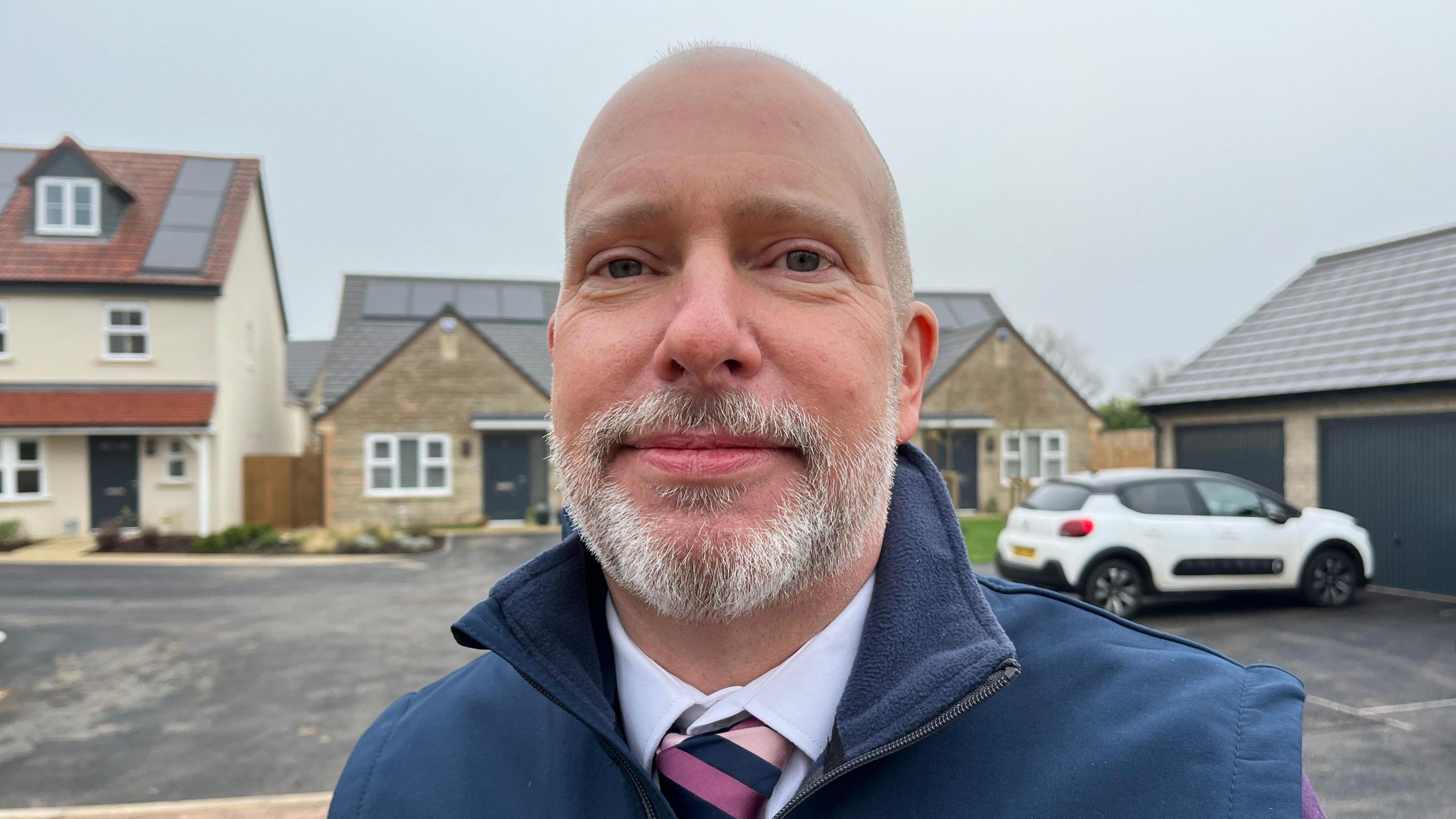
Newland's new homes also have improved insulation and air source heat pumps, Mr Parker said
Similar changes have been signalled by the government which could become part of new building regulations to be amended later this year.
While Mr Pennycook said approaches like Mr Wilkinson's risked adversely impacting housing supply, the construction industry and local authorities, he said that greener solutions would be part of new housebuilding rules.
"The new standards we will introduce will ensure that all new homes are future-proofed with low-carbon, heating and very high quality fabric," he said.
"[These] will reduce bills, tackle fuel poverty, grow skills, foster diverse job markets and make Britain energy secure.
"Solar energy will have an extremely important role to play in them."
Get in touch
Tell us which stories we should cover in Gloucestershire
Follow BBC Gloucestershire on Facebook, external, X, external and Instagram, external. Send your story ideas to us on email or via WhatsApp on 0800 313 4630.
- Published10 September 2024
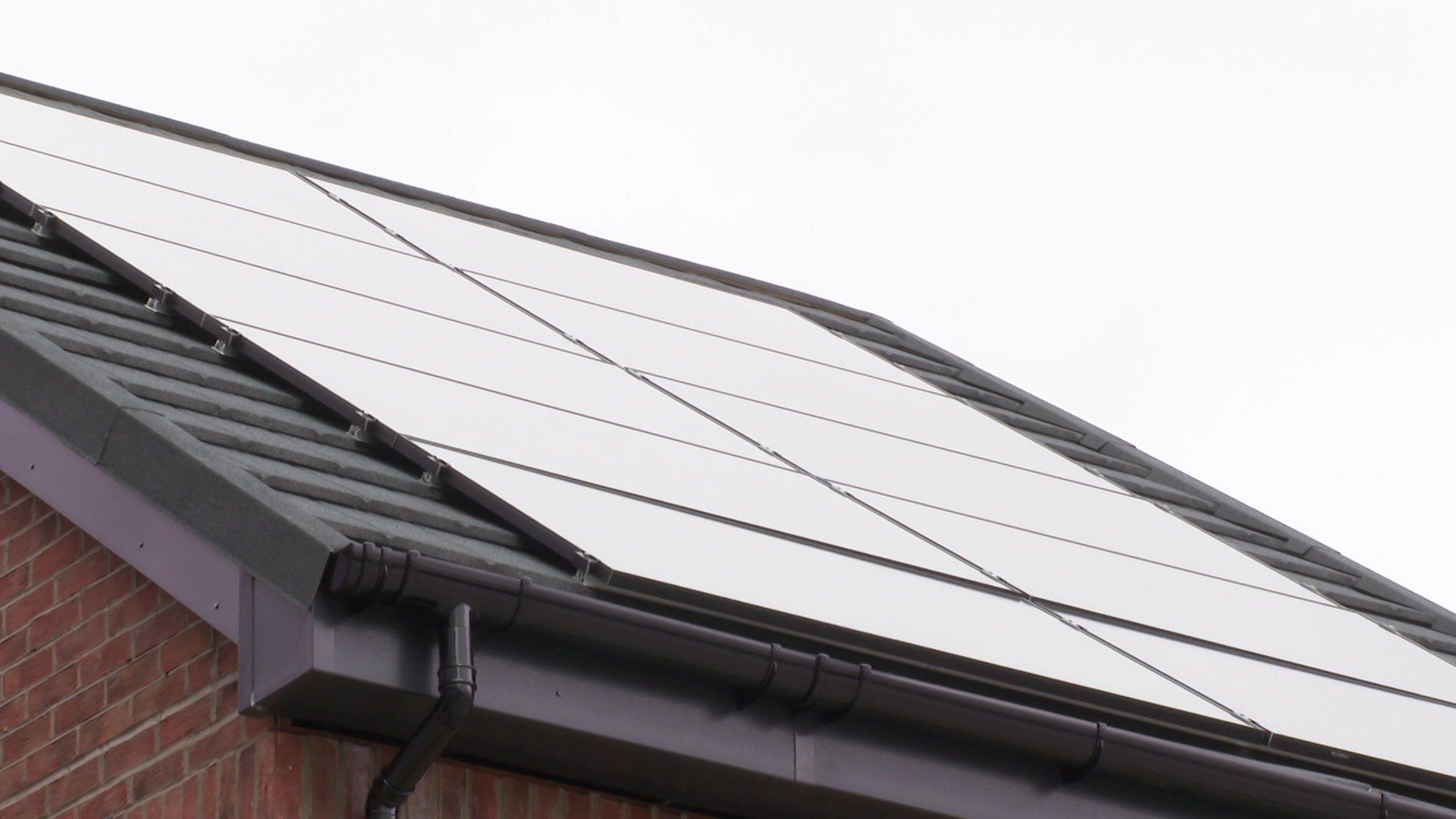
- Published9 May 2013